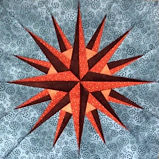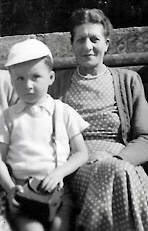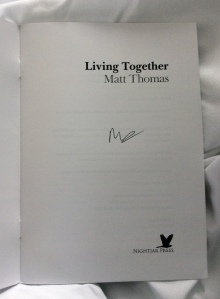Des Lewis will be 77 years old on 18 January 2025
Those who have read these episodic brainstorming reviews of mine must know they are very personal — rough-shod and spontaneous. Synchronicity and anagram mixed. I know they are not professional, never potentially publishable other than in the madness of my head, but I do hope they show grains of dark truth and cosmic panache.

These Des Lewis Gestalt Real-Time Reviews were founded in 2008.

‘What’s the loveliest word in the English language, officer? In the sound it makes in your mouth, in the shape it makes on the page? What do you think? Well now, I’ll tell you: E-L-B-O-W. Elbow.’ — THE SINGING DETECTIVE

“How shall a man find his way unless he lose it?” — Walter de la Mare

To any current genre author I have reviewed before — if you have a new story recently published or soon to be published in a collection or anthology, you may have a review by me of the story that also showcases where it is published. See HERE. (This is because I am no longer well enough to review as many books as I once did.)
Fresh Fictions, free to read HERE.
No AI input in preparation of my texts whatsoever.
THE NEW NONSCENIC
Photos here: https://conezero.wordpress.com/2024/02/24/d-f-lewis-recent-photos-1/
There may be some delay before being able to commence this review.
My copy numbered 112/200. About 20 pages.
“My brother was twenty-four and still managing to hide. Always in the same place, always in the attic. It wasn’t much of a chase.”
It is hard to detach myself from this story and see it objectively. And if I told you what happened in it, you would probably not believe me, but, if you did, this knowledge would spoil your undoubted enjoyment or serious appreciation of it. Suffice to say, it is well written and compelling. Why am I not able to detach myself? Well, in tune with my long experience of gestalt real-time reviewing, I have hit yet another illuminating synchronicity. Just an hour ago I read and reviewed (here) the Nicholas Royle story HIDE AND SEEK, in many ways completely different, but with a brother and sister playing hide and seek. A synergy of a number of co-resonating meanings that neither work had till I read both just now by accident. The two works already brilliant as standalones, I say, but now inadvertently even more brilliant. Here in the Sunnen it is not a hide and seek game exactly, but the results and oblique implications are similar. A Zeno’s Paradox fable. Almost. (And I noted the coloured spines of books in the Sunnen. Not white ones like Picador.)
My copy numbered 85/200. About 20 pages.
“Why people have children — to defer some of their own personal disaster.”
A truly incisive, but somehow laid-back, classic of today in the direcity of SE London near the Old Kent Road, with endemic neighbours who are autonomously noisy, abodes makeshift, glitches more like attritional gashes in the fabric of existence, alienation being an old man just standing outside your window with a hand down the front of his trousers, as we follow the main protagonist in this scenario as he continues gigging for creative app jobs, filling in as career carer for his sister’s small son and the smelly wounds of that boy’s recent cancer operation. Are there any undisputed experts who know anything about such wounds of life, I ask. Everyone puts the wrong ointment and dressings on, I say. No future-proofing, except the cockles with plastic toothpick, dried-out camembert with its cells collapsed, and birdlife soon to be only in a book. Detachment that aches in my soul, seeking the Zeno-slow depletion of body and soul.
abodes makeshift, glitches more like attritional gashes in the fabric of existence, alienation being an old man just standing outside your window with a hand down the front of his trousers, as we follow the main protagonist in this scenario as he continues gigging for creative app jobs, filling in as career carer for his sister’s small son and the smelly wounds of that boy’s recent cancer operation. Are there any undisputed experts who know anything about such wounds of life, I ask. Everyone puts the wrong ointment and dressings on, I say. No future-proofing, except the cockles with plastic toothpick, dried-out camembert with its cells collapsed, and birdlife soon to be only in a book. Detachment that aches in my soul, seeking the Zeno-slow depletion of body and soul.
Another brother and sister playing hide and seek with each other?